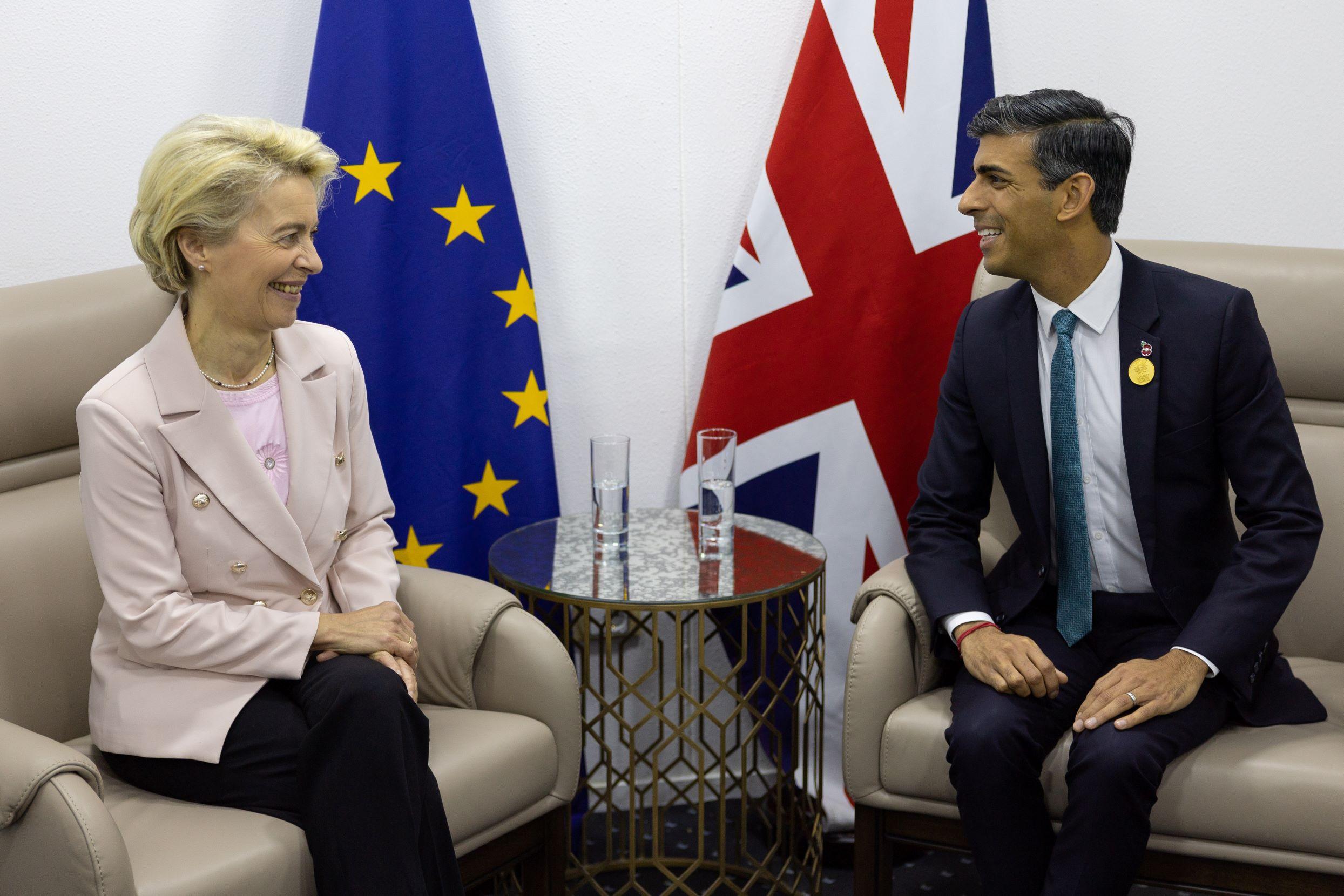 Jo Murkens argues that the European Union Act of 2011 should be viewed as a failed statute. Amongst other flaws the Act does not truly empower the people and is legally inconsistent.
Jo Murkens argues that the European Union Act of 2011 should be viewed as a failed statute. Amongst other flaws the Act does not truly empower the people and is legally inconsistent.
If there was one area in which the two coalition parties needed to produce a workable agreement as a matter of priority after the May 2010 election, it was the European Union. The European Union Act (EUA) 2011 contains all sorts of compromises: it delivers a referendum requirement, but not on the Lisbon Treaty; it affirms that the source of the validity of EU law is a domestic statute, but without mentioning the sovereignty of Parliament; it introduces constitutional safeguards, but without entrenching them against repeal by a future Parliament. Unfortunately, the EUA does not reflect the politics of compromise in a consensus democracy: it reflects dissent between the governing parties and within the Conservative party and, in most respects, is a compromised and failed statute.
The EUA builds on a political guarantee in the coalition agreement that there will be no transfers of sovereign powers until the next election (in 2015). That undertaking was intended to pacify the Europhobic wing of the Conservative party that had demanded but failed to get a national referendum on the hated Lisbon Treaty. It also finds expression in two legal themes that run through the EUA.
The first theme redresses the notion of the EU as an autonomous and supreme legal order by affirming that EU law is only valid in the UK because of the European Communities Act 1972. To that end, section 18 of the EUA had initially been conceived as a sovereignty clause (which received a disproportionate amount of attention in its draft form). The final version is much less ambitious, and all references to the sovereignty of Parliament have been cut. (A similar fate befell the UK Parliamentary Sovereignty Bill that was voted down at the crucial second reading stage in Parliament in March 2011).
Section 18 is nothing more than a declaratory provision that affirms the validity of EU law as stemming from section 2(1) of the ECA (but neglects to address the supremacy of EU law which stems from the acceptance by the UK judiciary). If the final text of section 18 was designed to direct UK judges operating in the post-Factortame era of statutory interpretation, it fails to tell them anything they don’t already know.
The second legal theme relates to the amendment of the European Communities Act of 1972 with the introduction of the novel requirement of a referendum plus Act of Parliament (this is the most controversial part), or only of an Act of Parliament, or of some other form of Parliamentary control, with respect to certain amendments to the Treaty on European Union (TEU) or the Treaty on the Functioning of the European Union (TFEU).
In relation to Parliament, its control, scrutiny, and accountability is clearly enhanced over a range of issues from the rights of EU citizens (Art.7(2)(a) EUA), and the use of Article 352 TFEU as a legal base (Art.8 EUA), to decisions in relation to the area of freedom, security, and justice (Art.9 EUA). That is, incidentally, also in line with the EU’s own provisions to encourage national parliaments to scrutinise the work of their respective governments in EU institutions and, in a variety of ways, to ‘contribute actively to the good functioning of the Union’ (Art.12 TEU) – which suggests that the EUA is more of a cheerleader for the Lisbon Treaty than a path-breaker for national democracy.
In relation to the referendum requirement, sections 3, 4, and 5 of the EUA need to be read together and read carefully in order to appreciate the ‘significance condition’ for referendums which forms the centrepiece of the EUA. Of particular interest are the three exclusions in section 4(4): codification of an existing competence (even if the Treaties need to be rewritten); competences that apply only to other Member States; and the accession of a new Member State. Examining only the last exclusion, EU enlargement clearly involves a constitutionally significant amendment: it will, for instance, impact on the UK’s weighted votes in the Council. Yet it is exempted from the referendum requirement because the UK government favours enlargement politically. These exclusions, although politically understandable, undermine the legal integrity of the EUA.
There is a further twist to the government’s tale about empowering the British people by giving them, as David Cameron said in a speech in November 2009, ‘a referendum lock to which only they should hold the key’. It is clear from the EUA that all Treaty changes that are to be subject to the referendum provisions require prior unanimous approval at EU level. Should the UK government not support the Treaty change, it is already empowered to vote against it in the EU institutions; in which case there is no need for a referendum. The government’s empowerment of the people has not diminished the government’s own powers by one iota.
Vernon Bogdanor puts forward a more radical spin on the referendum requirement. He argues that the EUA transforms Parliament into a new kind of legislature, a ‘tricameral’ Parliament that includes the familiar two chambers and, in the context of significant Treaty changes, also the previously ignored electorate. As a result, Parliament has partially but substantively limited its legislative authority and unilaterally altered the rule of recognition (i.e. the conditio sine qua non for the validity of law in any legal system). ‘In seeking to restore national sovereignty, the European Union Act has, paradoxically, restricted parliamentary sovereignty’. (See Bogdanor’s article for more.)
This is an intriguing, but also inaccurate, thought. Although the EUA purports to target future Parliaments, they remain unequivocally able to repeal or amend the EUA with a simple majority in Parliament. The real target of the EUA is Treaties amending or replacing TEU or TFEU (section 2 EUA) and the amendment of TFEU under Article 48(6) TEU (sections 3 and 4 EUA). In short, the EUA does not (and cannot) unilaterally change the rule of recognition; but it does seek to condition the exercise of Ministerial power (section 5, but also ss.3, 6, 7, 8 9, 10 EUA). Finally, the devolution legislation for Scotland, Wales, and Northern Ireland also involved Acts of Parliament preceded by referendums.
In sum, the enhancement and extension of Parliamentary control mechanisms over EU decision-making are the EUA’s sole redeeming features. In all other respects, the EUA should be viewed as a failed statute. It does not create fundamental constitutional protection, merely shallow and short-sighted political protectionism. It does not empower the people; it sells them a dummy. Instead of asserting Parliament’s ultimate legislative supremacy over EU law as planned and promised at the Bill stage, it falls silent on the matter.
In addition, the Act is legally inconsistent (e.g. for potentially allowing referendums on relatively minor matters), constitutionally pointless (it attempts to bind a future Parliament), institutionally botched (it boosts the powers of the courts, contrary to what it intended), and politically regressive (it undermines representative democracy by throwing a bit of direct democracy into the mix). In the long run, it is likely to be damaging: it will be politically very difficult to repeal (the Europhobes will make easy political capital out of trying to retain the currently hated EUA) and diplomatically very difficult to make work and defend. It is a good example of a bad law.
Note: This article gives the views of the author, and not the position of the British Politics and Policy blog, nor of the London School of Economics. Please read our comments policy before posting.
About the author
Jo Murkens is Senior Lecturer in Law at the LSE. Dr Murkens was previously a researcher at the Constitution Unit, UCL, where he led the research on the legal, political and economic conditions and consequences of Scottish independence. Jo has taught at University College, King’s College, and Queen Mary College (all in London), and was called to the Bar in 2006.






